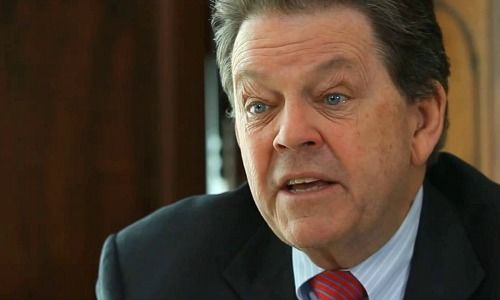That will in part be reversed. There are five things that create a prosperous economy:
1: A low-rate broad-based flat tax. We won’t get that. But we will move in that direction. The lowest possible rate to provide the least incentives for people to evade, avoid or otherwise don’t pay their taxable income. The broadest base to provide the least number of places for people to put their income to avoid paying their taxes.
2: Spending restraint. Government spending is taxation. To spend money, you have to take it from someone. If government were to spend 100 percent of output, there would be no output.
3: Sound money. There is nothing that can bring an economy to its knees faster than a weak currency. That’s the one fear I have right now. It’s hard to achieve with policy, unless you go back to the gold standard. We are probably not going to do that. Although with Reagan we came very close. I worked very hard on him to go back to gold.
4: Minimum regulation. We all know we have to have regulation. But what you want to make sure is that the regulation isn’t going beyond the specific purpose at hand and create a lot of collateral damage, which is what happened under Bush.
5: Free trade. It’s a win-win situation.
Then you will have a prosperity like god never created on earth.
«If you tax the rich and give the money to the poor, you will get lots of poor and no rich people»
Don’t we have to worry that Trump won’t foster free trade?
No. Let us be serious: I have never believed anything but that Donald Trump was a free trader. I hear all the words he says. He is the ultimate negotiator. In the best negotiation, you never tell them in what you believe. Any man who runs an international business is a free trader. Any man who imports two wives, is a free trader.
Won’t the divisions within society become a problem for economic policy in future?
Maybe, but I don’t think so. You cannot tax an economy into prosperity. If you tax people who work and pay people who don’t work – no one will work. If you tax the rich and give the money to the poor people, you will get lots and lots of poor people and no rich people.
«They change. I don't»
If you raise tax in B and lower taxes in A, producers and manufacturers will move from B to A. A poor man cannot spend himself into wealth. Stimulus spending kills an economy.
How will the U.S. finance the infrastructure projects promised by Trump?
By cutting taxes. When did we have the biggest surpluses in the U.S.? Under Kennedy we had a huge surplus. He cut taxes. He was a supply-side pro-growth president and we had a surplus. When else? Clinton! I voted for him twice. He cut government spending as a percentage of GDP by more than the next peace-time presidents combined. By 3.5%, that’s huge! That’s why I was a big Clinton supporter at the time.
It doesn’t matter from which party they come from, as long as they cut taxes?
I was a Democrat much more than a Republican. I was a Kennedy Democrat, a Clinton Democrat and a Reagan Republican. I like economics.
So you change?
They change. I do not change! And that’s why I don’t want a job from them.
Arthur B. Laffer, 77, is a U.S. economist. He acquired a Bachelor degree at Yale University and a PhD at Stanford. The founder of the Laffer Curve became famous as a supply-side economist and staunch proponent of tax cuts. He was an important adviser of U.S. President Ronald Reagan in the 1980s and was credited with what became known as Reaganomics. Laffer is also close to the Trump administration.
Laffer spoke at the ZfU-Kapitalanlegertagung, a conference for investors, in Zurich-Regensdorf on Monday and granted finews.com an exclusive interview.
- << Back
- Page 3 of 3




































